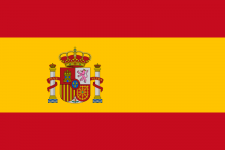
Federación SOS Racismo released its 2022 annual report on racism in Spain, which provides in-depth analysis of structural discrimination and racism in Portugal and suggestions for ways in which it can be tackled at the root, through strategies that facilitate victims' access to effective and reliable justice systems. It presents statistics on cases of discrimination, racism, xenophobia and hate crime, alongside explanations of victims' motivations for reporting and under-reporting.
An important finding presented by the publication is that the number of complaints made has increased since 2017, perhaps indicating worsening living conditions for racialised people in Spain. Most registered complaints correspond to the category of institutional racism, followed by the denial of access to private benefits and services, racially motivated conflict and aggression and, least common, discrimination in employment. As the report points out, such events can have a serious impact on migrants' integration, and intervention mechanisms are necessary to prevent their further exclusion.
The report also pays special attention to the fact that there is significant under-reporting of these cases of discrimination, because most complaints do not end up in judicial initiatives and / or opt for extrajudicial solutions. In 2022, for example, 38.6% of victims chose not to file a complaint. This presents a challenge for initiatives seeking to provide a solution to the problem, as the official information available is not wholly representative of reality.
The study finds that the group most likely to experience discrimination and racist violence is Roma people, followed by those from North African countries, Afro-descendants, and people of Latin American and Asian origin. When tackling the question of the motivation behind such discrimination, those interviewed by the federation pointed to historical causes and the role and impact of the media in perpetuating related narratives. When it comes to the reasons for under-reporting, those interviewed pointed to a lack of knowledge about available resources to do so, to their own individual and collective rights, and to the belief that reporting does not improve the lives of racialised people; rather it can bring reprisals.
A set of proposals is also provided, including a new approach for independent and comprehensive intervention, mechanisms to restore damage that do not necessarily have to be criminal, the training of professionals, and the formulation of strategies for the empowerment of racialised people.
Details
- Geographic area
- Spain
- Contributor type
- Non-Governmental Organisations/Civil Society
- Original source
- Posted by
